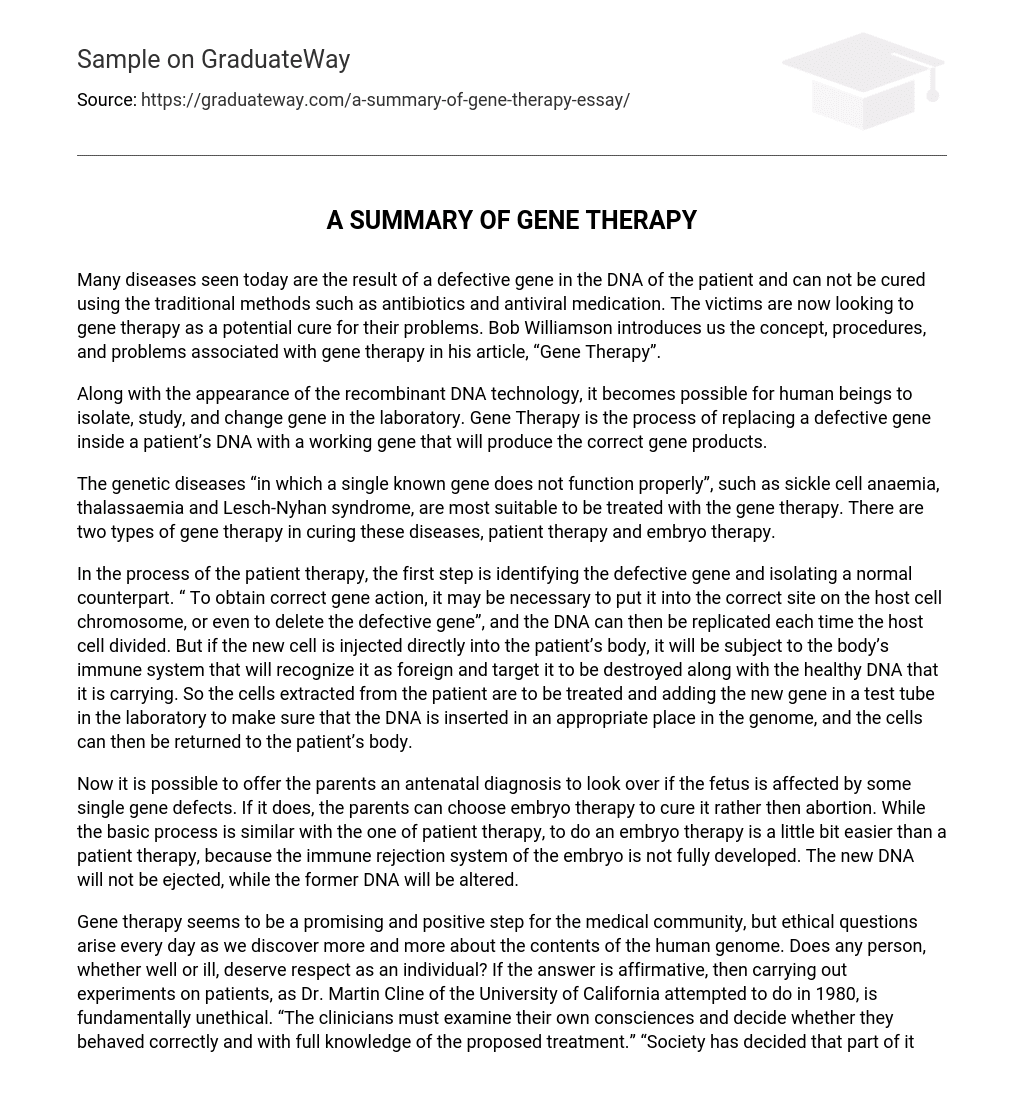Bob Williamson’s article “Gene Therapy” explores how a defective gene contributes to different illnesses and the need for unconventional approaches like gene therapy. The author provides insights into the concept, procedures, and obstacles related to this potential remedy.
Recombinant DNA technology allows for the isolation, analysis, and manipulation of genes in a laboratory. Gene Therapy involves replacing a non-functioning gene in an individual’s DNA with a functional gene that produces the necessary gene products.
Gene therapy is the most suitable treatment for genetic diseases that are caused by a single faulty gene, like sickle cell anemia, thalassemia, and Lesch-Nyhan syndrome. There are two methods available for treating these conditions: patient therapy and embryo therapy.
During the patient’s therapy, the initial step involves identifying and isolating a normal counterpart for the defective gene. “To ensure correct gene functionality, it is sometimes necessary to place it in the proper location on the host cell chromosome or remove the defective gene altogether.” Subsequently, the DNA can be replicated each time the host cell divides. However, if the newly formed cell is directly injected into the patient’s body, it becomes susceptible to the body’s immune system which perceives it as foreign and targets it along with the healthy DNA it carries for destruction. Consequently, cells extracted from the patient must be treated. This involves adding the new gene in a laboratory test tube to guarantee appropriate insertion into the genome. Ultimately, these modified cells can be reintroduced into the patient’s body.
Now, parents have the option of receiving an antenatal diagnosis to determine if their fetus is affected by any single gene defects. If a defect is found, instead of choosing abortion, parents can opt for embryo therapy to treat and cure the condition. The embryo therapy process is similar to patient therapy, but easier in some aspects due to the underdeveloped immune rejection system of the embryo. In this therapy, the new DNA is not rejected, while the original DNA is modified.
Gene therapy is a promising step for medicine, but ethical concerns arise as we learn more about the human genome. The question of whether every person deserves respect, regardless of their health, is crucial. Dr. Martin Cline’s attempt to experiment on patients in 1980 is considered unethical and clinicians should reflect on their actions with full knowledge of the proposed treatment. Society allows termination of pregnancy before approximately 3 months if the child would have a serious handicap, but there is ambiguity in defining what qualifies as a serious handicap. Terminating a pregnancy when there is still a chance for the embryo to be normal raises ethical considerations. Additionally, altering the inheritance of an early embryo through gene therapy raises concerns about long-term genetic problems in human inheritance. These are questions that both the medical community and patients must address, as there are currently no clear precedents.
Despite the promising potential of gene therapy to enhance the quality of life for individuals with previously fatal illnesses, its implementation in practical settings still requires significant advancements by humans.





